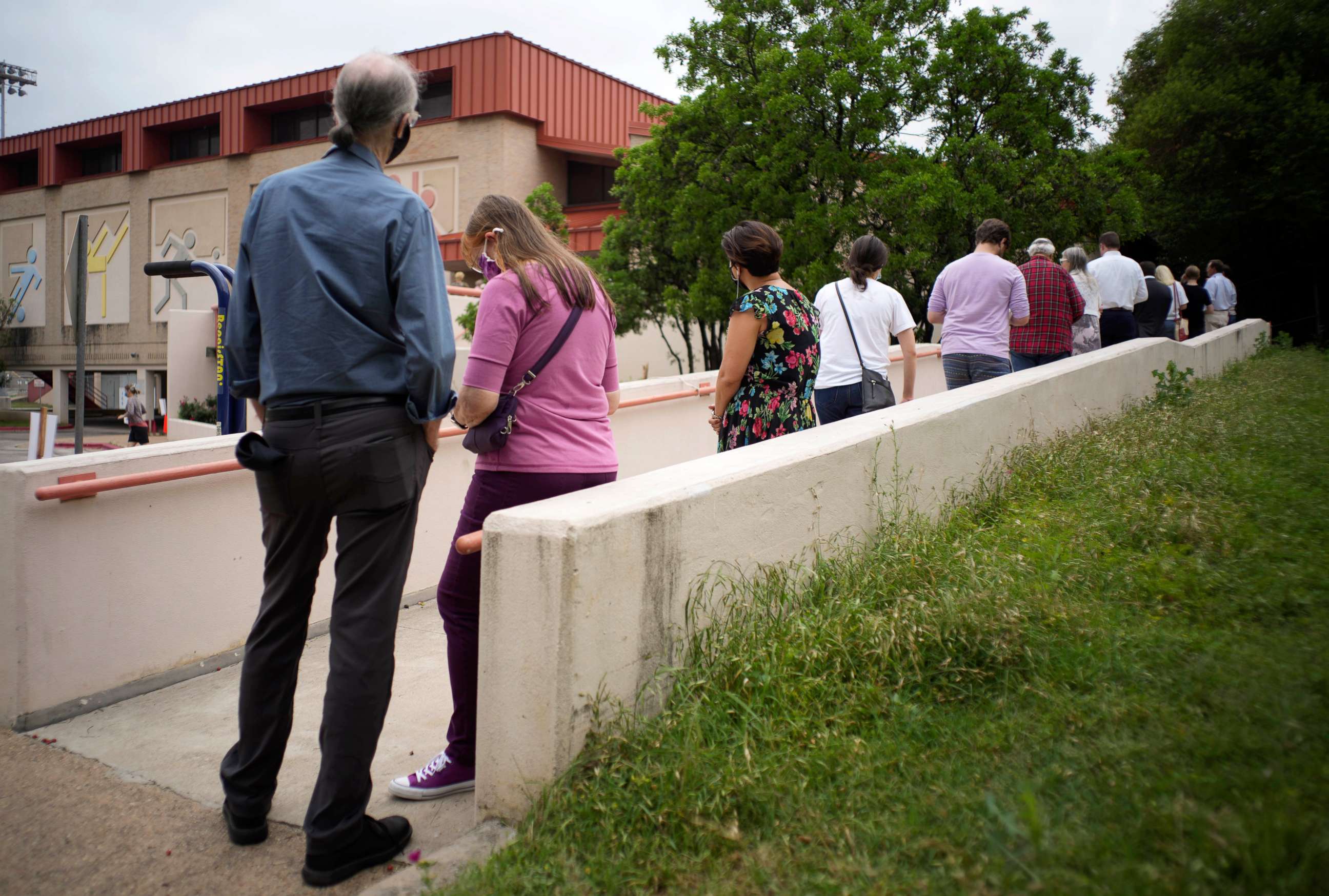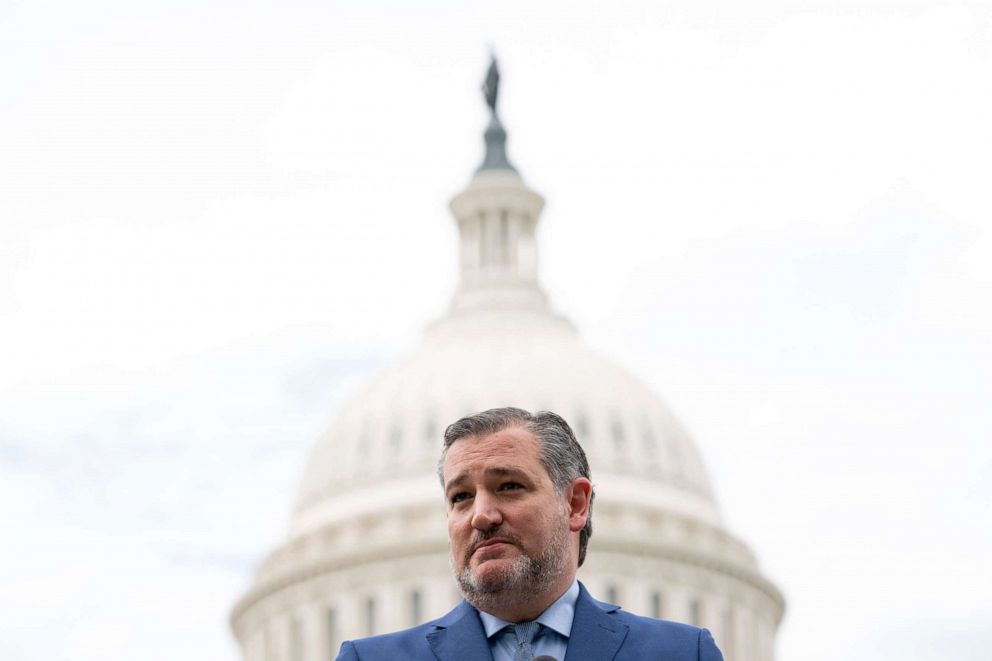Texas House advances restrictive voting bill after late-night vote
The battle over Lone Star State voting rights continues.
After weeks of debate and political maneuvering, Senate Bill 7 -- legislation supported by Republicans that would revise Texas election laws to restrict voting access -- passed early Friday morning along a party-line vote.
Texas Republicans replaced House Bill 6 with SB 7 due to identical language and because SB7 is further along in the legislative process. The bill went through a third reading and final House vote Friday before it was sent back to the Senate for advancement.
The version of SB 7 that passed in the House includes significant changes from its original language. When the Texas Senate passed its version of the bill in April, the bill included restrictions to early voting parameters and imposed a ban on drive-through voting, which was utilized in the state’s more populated and diverse areas during the 2020 election season. Those provisions are not in the bill's current language, but it is still possible that elements from both versions of the bill could be included in the final language.
The move is the latest in an emerging national trend of state Republicans reevaluating election laws following unfounded conspiracies surrounding the 2020 election. According to the Brennan Center for Justice, a nonpartisan, independent organization that analyzes election rules, so far this year, nine states have passed 14 bills restricting voting access.
Efforts in Texas are still several steps away from reaching the desk of Gov. Greg Abbott, who touted the importance of "election integrity" in a Thursday tweet leading up to the House’s vote.
After several rounds of amendments, the bill was streamlined to include protections for attendants and caregivers who may need to assist voters with medical conditions cast their ballots.
The bill was also amended to further clarify the kind of access poll watchers could have within polling places and granted permission for election judges to call on law enforcement to remove any poll watcher who commits a "breach of peace." Previously, the bill outlined that poll watchers could only be removed "if the poll watcher engages in activity that would constitute an offense related to election fraud."

Voting rights advocates pointed to that provision as an example of how the bill would allow voter intimidation and said it set the bar very high for the expulsion of a poll watcher. According to the Brennan Center for Justice, the bill's initial language essentially limited "the ability of election workers to protect voters against illegal disruption and harassment by 'watchers.'"
"If a poll watcher starts screaming, yelling, (or) arguing with a voter, (or) laying down on the floor, (or) banging pots and pans -- poll workers would not be able to eject those individuals. That would be a crime. The only recourse for the poll worker would be to call the police and hope that the police would come," said Nina Perales, who serves as vice president of litigation for the Mexican American Legal Defense and Educational Fund, during a Wednesday press call.
The outcome of the vote is sure to set off a renewed round of backlash from prominent Democrats and voting rights activists who spent weeks decrying state Republicans' push to advance dual pieces of election legislation in both the House and the Senate. Former presidential candidates and Texas locals -- Julian Castro, Joaquin Castro and Beto O'Rourke, as well as voting rights advocate Stacey Abrams -- have all spoken out against the advancement of the bills.

In addition to high-profile political voices, corporate giants like American Airlines, Microsoft, Dell and Unilever weighed in with their opposition to the legislation, which began progressing through the Texas legislature on the heels of the fallout surrounding Georgia's revised election laws.
On Tuesday, more than 50 companies, business groups and industry leaders signed a letter calling on "lawmakers to uphold our ever elusive core democratic principle: equality."
"We stand together, as a nonpartisan coalition, calling on all elected leaders in Texas to support reforms that make democracy more accessible and oppose any changes that would restrict eligible voters' access to the ballot," the letter said.

The state's top Republicans have repeatedly voiced their opposition to corporate giants weighing in on the progression of the bills, as many companies continue to dig in against the legislation. A Republican-backed proposal to financially penalize entities that "publicly threatened any adverse action" against Texas in their opposition to election legislation was even briefly discussed during the state's budget debate in April.
Ultimately, the proposed amendment was not added to the budget, aligning with comments made by Texas Lt. Gov. Dan Patrick in April when he was asked if companies who were critical of the state's election bills should lose financial incentives.
"This is not a quid pro, we don't punish people because they disagree with us," Patrick said at the time.
In a recent Wall Street Journal op-ed, Texas Sen. Ted Cruz took a different approach by castigating what he called "watch-me-woke-it-up CEOs" and announcing he would "no longer accept money from any corporate PAC." He urged Republicans at all levels of government to follow suit.
"Enough is enough. Corporations that flagrantly misrepresent efforts to protect our elections need to be called out, singled out and cut off," Cruz said.
Across the aisle, in one of the state's most diverse cities on Wednesday, two of the region's top Democrats -- Houston Mayor Sylvester Turner and Harris County Judge Lina Hidalgo -- refused to have their respective "state of the city" and "state of the county" events produced by the city's chamber of commerce, the Greater Houston Partnership, over the organization's lack of expressed opposition to the advancement of the state's voting bills, including HB 6.
"There is nothing partisan in voting suppression ... when there are bills that engage in voter suppression, voter intimidation, restricting access to the polling place -- that's not partisan, that's just downright wrong," Turner said at a press conference, while urging business leaders to make greater strides in opposing the bill before it is enacted into law.




